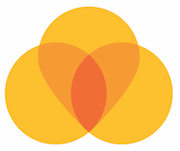
May 3rd, 2021
Dear Colleagues,
As the third wave of the COVID-19 pandemic slams Ontario, we are acutely aware of the increasing numbers of very sick patients and the demands on our health care system.
In the past two weeks, the PARO office has received multiple calls a day from Hospitals and Program Directors enquiring how residents might be mobilized to help with the increased patient care needs. We have also had many enquiries from residents asking how they might expedite their application for the Restricted Registration program (RR license). We have also heard many reports of residents being asked to volunteer to cover extra call and shifts.
Recognizing the urgency of these unprecedented service needs, together with the realization that the number of residents with an RR license is limited and that the process to secure an RR license can take several weeks, PARO initiated conversations with the CPSO, the Ontario Hospital Association, the PG Deans and CMPA to discuss ways that we might be able to effectively mobilize any resident who is able to help in a way that would allow them to receive extra pay for extra work. As a result of this collaborative effort, and after consideration of other pressing health human resources needs facing hospitals, the Ontario Government announced a Cabinet order on April 22nd.
The April 22nd Cabinet order authorizes the ability of health care professionals to provide patient care services outside the regular scope of their license and enables hospitals to employ or contract for those services. This provision set the stage for discussions with the hospitals and the Ministry over how residents might help and how they would be compensated. These discussions were finalized on April 24th and the Ministry subsequently advised that it was establishing an hourly rate of $50.00.
On April 29th, the Ministry of Health issued a Memorandum to Hospital CEOs outlining this new Medical Residents Redeployment Program. The Memorandum states that government has recognized that residents are one of the key health care professional groups well-suited to provide patient care services outside of their regular scope of practice. Practically speaking, this new program will allow residents without an RR license to voluntarily provide care, with appropriate supervision within a hospital setting, over and above any existing duties associated with training and be paid.
What does this mean?
If you want to be part of this program and are assigned to provide any additional patient care outside of the normal hours of your training program in a hospital or other approved setting, including providing vaccinations, you will be eligible to be paid $50/hour for this work. This extra pay does not apply if it is service that you are providing and getting training credit for – i.e. where the work is already part of your training program and therefore paid by your regular salary. However, if you are available outside of the specific requirement of your training program, or on vacation, you are needed and available to provide services then this hourly rate can be used by the hospital to hire you to do the work. This includes situations where a service has a hole in the call schedule and ask someone to volunteer to cover the call. Similarly, if you are asked to volunteer to cover extra call on the weekend or at night, then this program would apply.
We’ve been notified that this program officially came into effect as of April 28th so we will be working with the PG Deans and the Hospitals in the coming days to work out all of the operational details. I am pleased to tell you, however, that the CMPA has confirmed that any resident who participates in this program will automatically be covered by the CMPA. Unlike residents who obtain an RR certificate, residents participating in this program will not need to notify CMPA or change your classification code, as long as your educational CMPA coverage is valid. We have also agreed in these extraordinary times to an exception to the collective agreement so that if you have the capacity and choose to participate in this program, this extra work will not be subject to the maximum duty hours in the PARO-CAHO Collective Agreement. However, at the same time, you cannot be pressured or coerced into doing this extra work, and if that is happening please contact the PARO office immediately.
For those of you who have been asked to volunteer to work extra shifts or who are thinking of volunteering in the future, we have worked hard to ensure that there is a way for all residents to be eligible and to ensure that you will receive extra pay for doing so, as a tangible way of recognizing your contribution.
I would like to thank the CPSO, CMPA, CAHO and the OHA and all of the PG Deans for their solution-oriented collaboration.
Warm regards,
Dr. Ryan Giroux
President


